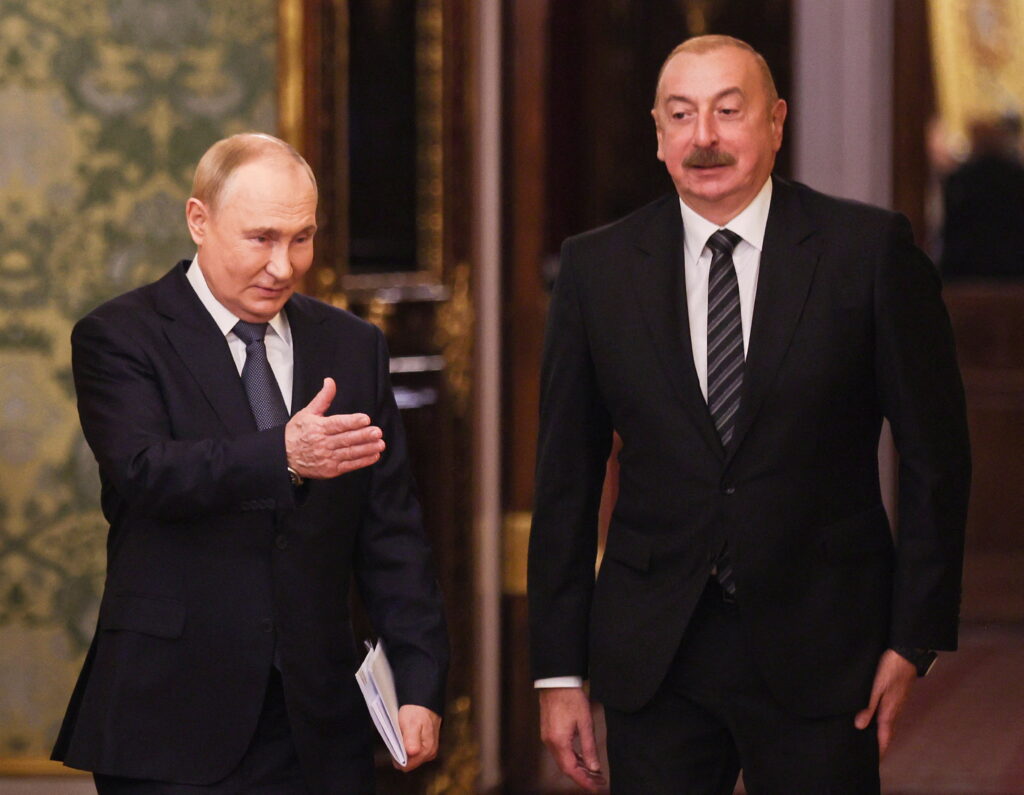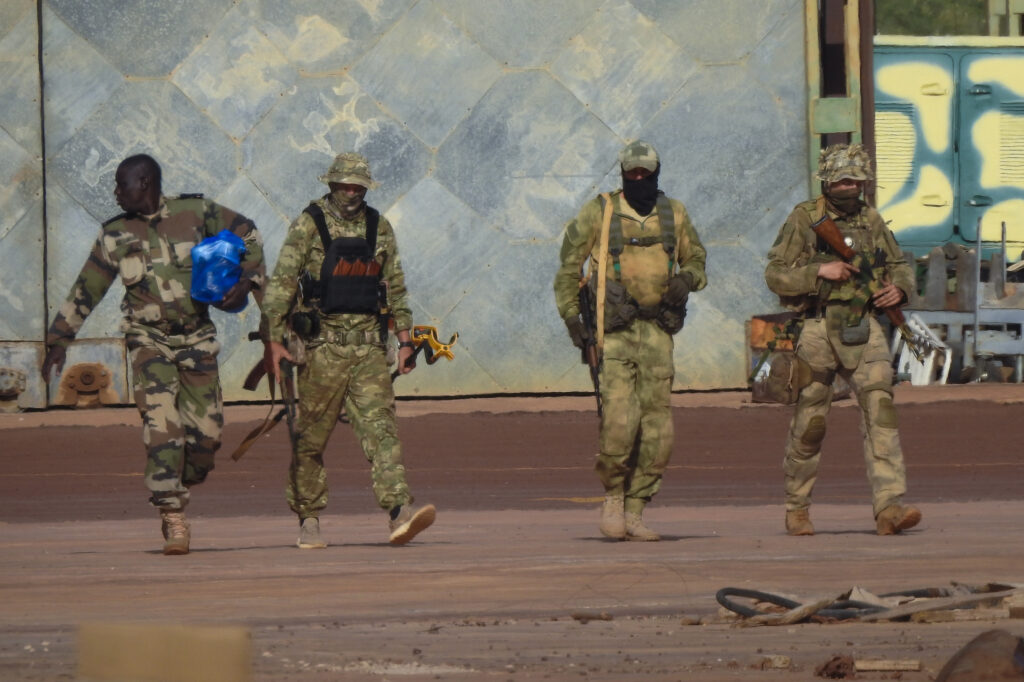The start of a new war in the Middle East between Israel and Hamas has sparked speculations about Russia’s role in Hamas’s initial attacks against civilians. Right away, some Russia watchers claimed Moscow was behind it via its ties with Iran, and was seeking to open a new front against the West while distracting attention away from Ukraine.
Although there is little to back this theory, Moscow has not remained silent. Rather than spreading fire, it has engaged in a flurry of diplomatic initiatives, seeking to portray itself as a peacemaker. These efforts on the diplomatic front may seem disingenuous at best from a Western perspective in light of Russia’s invasion of Ukraine. Both France and Germany criticised Russia’s «cynical» denunciations of Israel’s actions against civilians. Yet the question is as much about whether Russia’s diplomacy carries much weight. While Moscow’s diplomacy receives a certain echo in the Middle East, Russia today lacks the resources and clout to act on it.
Russia’s diplomacy in recent days
A few days after Hamas’ attack against Israel on October 7th, President Vladimir Putin quickly took the lead on Russia’s diplomatic initiatives. The Russian President held calls with key regional players from Iran, Iraq, Syria, Egypt, Turkey, the Palestinian Authority, and Israel. He repeatedly called for the establishment of a «peaceful settlement through political and diplomatic means,» and stressed the importance of the establishment of a Palestinian state for a durable peace. In addition, Russia pointed at the U.N. a resolution calling for an immediate humanitarian ceasefire. Moscow presented this initiative as a «purely humanitarian text,» highlighting the way in which it wanted to be perceived in the war: a purely benevolent actor seeking peace.
This diplomatic activity stands in continuity with Moscow’s public approach to conflicts in the Middle East since its 2015 military intervention in Syria. Paradoxically, after having bombed Syria to keep Bashar El-Assad in place, Russia presented itself as a force for peace. It pushed for diplomacy related to Syria through the Astana format (Turkey, Iran and Russia), hailed as a success by Russian voices. However, Western voices denounced the process as solely a way to legitimize certain Syria mock-opposition groups, and further prop up Assad, rather than build the basis for a stable peace. Similarly, Moscow also claimed its desire to solve conflicts in all of the Persian Gulf through its ‘Security concept for the Persian Gulf,’ which, unsurprisingly, never gained traction.
With the Israeli-Palestinian conflict, Moscow has sought to advance peace through the long-expired Middle East Quartet, and use its connections with counterparts to bring about a reconciliation of Palestinian factions. As reiterated in recent days, Russia sees the resolution of the conflict as requiring the establishment of a Palestinian state with East Jerusalem as its capital.
Russia’s aversion to chaos in the Middle East
Despite such diplomatic efforts, Russia has been rapidly denounced as benefiting from and even being responsible for Hamas’ attack on October 7th. Voices including the head of Ukraine’s security services Kyrylo Budanov claimed that Moscow provided weapons to Hamas; others saw in the Soviet weapons carried by the militants a direct link to current-day Russia. Others did not blame Moscow directly for the attack, but argued that Moscow would seize the moment to provoke a wider conflict in the Middle East, hoping that it would send Washington’s funding and focus to Israel rather than Ukraine.
Such a reading fails to take into account Moscow’s past approach to instability in the Middle East. Moscow has been generally wary of seeing chaos in the region. Russian decision-makers see it geographically as Moscow’s backyard and perceive instability there as likely to boil over to Russia’s own territory. This has been demonstrated in its fight against radical Islam in the region, fearing the radicalisation of minorities on its own territory. During the uprising in Libya, then-Prime Minister Vladimir Putin similarly pushed back against regime change, warning that «external interference» could galvanise Islamists, creating a domino effect right the way over to Russia’s North Caucasus.
In that sense, Russia is not trying to spread chaos in the region, because it fears that any chaos caused would circle back. Nevertheless, when wars start, Moscow hops in, launching a flurry of diplomatic initiatives to appear as a force for peace. This self-presentation may seem disingenuous after its Ukraine invasion.
The audiences of Russian peace initiatives
The audience for these peace overtures is not the Western world, but rather domestic and pro-Palestinian leaders in the «Global South.» Domestically, Putin uses these actions to demonstrate that Russia is not isolated on the international stage, and that he remains a world leader, continuously lifting Russia from its knees. In addition, they fuel the narrative of Russia as a peaceful actor, defending itself against «Western colonialism» and spreading instability near Russia’s borders, in Ukraine and the Middle East.
This second narrative, pointing the finger at Washington to appear as benevolent, is also sold to the Global South. For his first public statement on the war in Israel, Putin told the Iraqi Prime Minister that the escalation of the conflict is a «vivid» example of the failure of the United States in the region. Such a statement stands in line with Moscow’s diplomatic activities to construct, in opposition to the West, Russia’s status as a responsible great power. While in international relations theory, status is traditionally conceived as obtained through military actions and mediation as an altruistic tool, Russia mediates in the Middle East for status.
In addition, while Israel and the United States are often bundled together in the minds of Middle Eastern leaders, with Israel depicted as Washington’s ‘little brother,’ Moscow has managed to manage ties with opposite actors, and appear even-handed. Russia has continued to hold talks with Hamas representatives, Israel, and the Palestinian Authority amidst the war. These ties are advertised by Moscow to appear as a neutral mediator, a «humanitarian» actor, acting for unbiased peace. Speaking with groups labelled internationally as terrorists, like the Palestinian Islamic Jihad, does not deter the Kremlin if it allows it to be perceived as such, and highlights Western biases.
In turn, American support for Israel is instrumentalized in Moscow’s discourse to denounce Washington’s double standards. The U.S. is depicted as denouncing war crimes in Ukraine but failing to condemn Israel, a state which, according to Putin, conducts a siege in Gaza comparable to the Nazi blockade of Leningrad.
Rhetorical support — and after?
Given the history of the West’s policy in Iraq, such discourse is likely to resonate to a greater extent in Baghdad than in Berlin, Paris, and Washington. Iraqi Minister Muhammed Shia Al-Sudani spoke of Russia as a «great power» when mentioning Moscow’s role in the Israeli-Palestinian conflict. While Arab Group members, Palestine, and the United Arab Emirates supported Russia’s UN resolution regarding the war in Israel; France, Japan, the United Kingdom, and the United States turned it down. Hamas also praised «Russian President Vladimir Putin’s position regarding the ongoing Zionist aggression.» In Arabic-language media, commentators also lauded Moscow’s position in the Israeli war and contrasted it with the American stance, in line with Moscow’s desired goal.
Western states often fail to take into account the positive reception that Moscow’s peace initiatives receive among Middle Eastern leaders. Discarding Moscow’s diplomatic efforts as irrelevant without trying to comprehend to what extent and why they get a positive reception is counter-productive not only in the context of the Israeli-Palestinian conflict but also with regards to Ukraine. It helps understand the Global South’s unwillingness to condemn Russia’s invasion and impose sanctions.
While Russia’s diplomatic efforts receive rhetorical support from Middle Eastern states, they fail to translate it into tangible gains. Domestically, in light of falling living standards and rising prices in Russia, Putin’s efforts to solve one of the world’s longest-standing wars are unlikely to gather much traction. Russia has been unable to put into practice any of its recent peace proposals, lacking the clout and resources to do so. Syria remains a devastated country, with reconstruction a distant prospect. The support for Russia in the region is limited by fears of tensions with the West. For example, the United Arab Emirates stopped allowing Russians to open accounts out of fear of secondary international sanctions, and Emirati financial institutions are cautious when dealing with Russian individuals.
The central tenet of Russia’s Middle East policy — maintaining ties with all actors — might also be unravelling in light of its stance on the Israeli-Palestinian conflict. Statements made by President Putin, equating Israel’s policy in Gaza with Nazi Germany and failing to label Hamas as a terrorist group were naturally not well received in Jerusalem. Israel has adopted a cautious stance with regard to its support for Ukraine, and it is now realizing that Russia does not take such precautions. It has yet to reassess its stance in the war in Ukraine, as it is currently focused on its own war at home, but the time will come when the ties with Russia will also come under examination. Trying to appear as a great power and benevolent peacemaker, Russia might end up with respect only from actors like Hamas.










